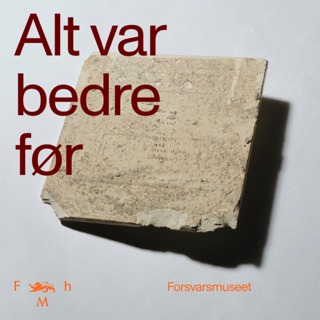
Music in Ancient Greece
Without recordings, and with notation and instruments long forgotten, how can we possibly know what music soundtracked Ancient Greek life? James Lloyd from the University of Reading has been studying Ancient Greek music, in particular its role in Ancient Sparta. In this episode James tells Tristan how it has been possible to recreate songs and instruments from antiquity. He takes us into the mythology connecting music to the Gods and Goddesses, and to nature, and he explains how the reaction to music in Ancient Greece may sometimes have been similar to the reaction to rock in the United States in the 20th century, and to drill in the UK today. Hosted on Acast. See acast.com/privacy for more information.
28 Mar 202147min

The Rise of Cicero
Cicero is often considered to be one of the greatest orators of Ancient Rome. But how did he reach prominence in Roman politics? Why are his speeches so well remembered and what makes them extraordinary? Catherine Steel from the University of Glasgow joined Tristan to talk through the ascent of this statesman, lawyer and scholar from the Late Roman Republic. Hosted on Acast. See acast.com/privacy for more information.
25 Mar 202139min

Boudica: Through Roman Eyes
The Iceni warrior who led a revolt against the Roman Empire around 60 AD often stands alone in our memory of ancient queens in Britain, but in this episode we explore Boudica’s portrayal in comparison to her contemporaries. In this second half of Tristan’s chat with Caitlin Gillespie, author of ‘Boudica: Warrior Woman of Roman Britain’, she also examines Boudica’s legacy, and the outcome of her revolt. Hosted on Acast. See acast.com/privacy for more information.
21 Mar 202123min

Petra: The Rose City
A city of caves, temples and tombs, Petra gains its nickname from the pink sandstone from which it was carved. In this second part of his conversation with Tristan, Professor David Graf, who directed excavations in the ancient Nabataean city, describes the finer details of the architecture and artefacts found there. David and Tristan discuss Petra’s position on trade routes, its leadership and culture and whether, after becoming a client kingdom of Rome in the 1st century BC, and being annexed in 106 AD, much changed for the city. Did the Nabataeans maintain any autonomy or individuality? And what was to lead to Petra’s slow demise? Hosted on Acast. See acast.com/privacy for more information.
18 Mar 202126min

The Ides of March
In 44 BC, the Ides of March took on a new significance. Previously observed as the first full moon of the new year, the 15 March is today remembered as the anniversary of the assassination of Julius Caesar. In this episode, Dr Emma Southon talks Tristan through the events leading up to the Caesar’s assassination: was he forewarned with omens in the days preceding his death? Who was involved in the plot and why did they want to kill him? Did Caesar really say 'et tu Brute?' And what of the more important 'other' Brutus? Emma tells the story of this momentous day.Quick note: Caesar wasn't technically killed in the Senate House. He was killed in the senate meeting room, which at that time was held in the Curia of Pompey.We also follow the theory that it was upon seeing Decimus Brutus, not Marcus Brutus, that Caesar gave up and stopped resisting his assassins. The debate continues! Hosted on Acast. See acast.com/privacy for more information.
14 Mar 202147min

Women and Power in Ancient Egypt
Kara Cooney has been studying 6 of the remarkable female pharaohs of Ancient Egypt. In this episode she explains why many of them have been forgotten, and others regularly misrepresented. Professor of Egytian Art and Archaeology at UCLA, Kara introduces us to the lives and rules of Merneith, Neferusobek, Hatshepsut, Nefertiti, Tawosret and Cleopatra, and explains how their reigns were used as tools of control in a patriarchal society.Kara is the author of: 'When Women Ruled the World: Six Queens of Egypt'. Hosted on Acast. See acast.com/privacy for more information.
11 Mar 20211h 12min

Boudica: Britain's Warrior Queen
Boudica has become a hero of British folklore. Her leadership of the Iceni in an uprising against the forces of the Roman Empire in around 60 AD is echoed around school classrooms. But what evidence do we have for her actions, appearance and eventual defeat? Caitlin Gillespie is the author of ‘Boudica: Warrior Woman of Roman Britain.’ In this first of two episodes, she speaks to Tristan about the sources that have helped us to find out more about this legendary woman. Hosted on Acast. See acast.com/privacy for more information.
7 Mar 202131min

The Origins of Warfare
Popular discussions of human history are punctuated with conflict, but when did warfare begin? To discuss this massive question, Professor Nam Kim has returned to the Ancients. Taking in examples from Ancient Germany, Britain, Kenya and Vietnam, Nam uses Anthropological Archaeology to decipher whether Ancient societies were involved in warfare before the birth of nation states, and to explore the question of why humans have been prone to violence between groups. Hosted on Acast. See acast.com/privacy for more information.
4 Mar 202150min




















